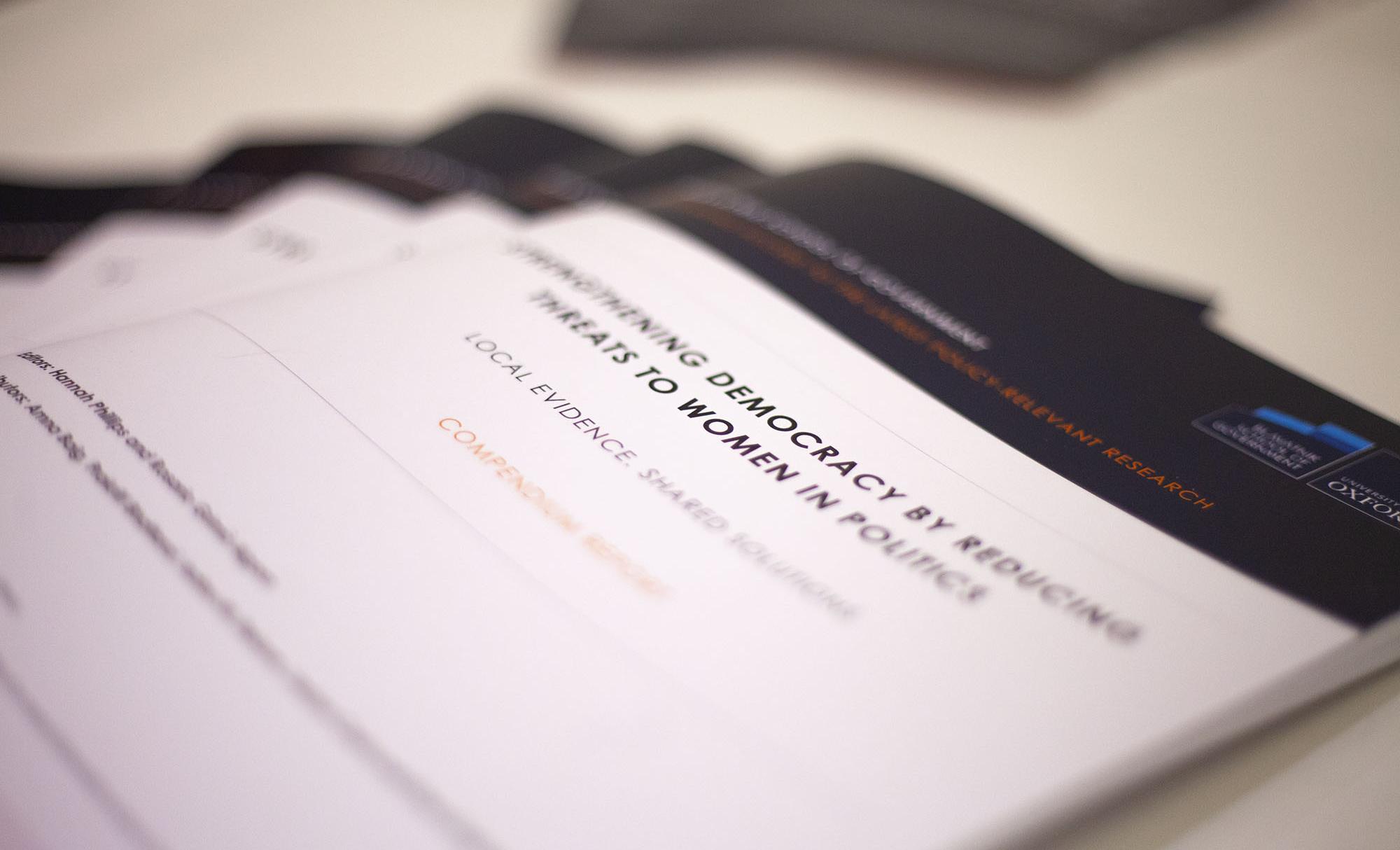
A new report explores threats to women in politics around the world to assess the shared challenges and solutions
The report was written by former Master of Public Policy students Amna Baig, Prakriti Bhattarai, Isatou Bokum, Jaclyn Corin and Ema Grajcarová during their policy report placements and has been edited by esearchers Hannah Phillips and Rosario Grimà Algora.
Democracy is at stake when women who are politically active feel that their ability to represent their community and express themselves is threatened by abuse, harassment and violence, says the report.
The report notes that while a record number of women entered the UK parliament in 2024, abuse, harassment and violence continues to shape the daily realities of female politicians both in the United Kingdom and around the world. Many women may leave politics, not participate at all or change the way they engage with the political system.
Common challenges
From the European Union and Sub-Sahara Africa to the United States of America and Pakistan, the report identified key challenges. They include the political unwillingness to acknowledge violence against women in politics as a specific phenomenon, the inadequacy of implementation of existing legal and policy frameworks, and the global and national difficulty of regulating social media companies and prosecuting online crimes.
The report's recommendations for action
- Social media platforms: publish regular transparency reports detailing the types of content reported, actions taken, and response times
- National governments: strengthen online regulation by encouraging the adoption of proactive technologies and safety as key performance indicator. Penalize non-compliance. Create a well-resourced, powerful regulator for social media companies, ensuring a focus on gender and public life.
- Media publishers: present violence against women in politics not just as a gender-specific problem but as a broader issue of public safety, violence deterrence, and democracy.
- Civil society: integrate the issue of violence against women in politics into advocacy agenda from digital regulation to political participation
- Research community: close the research gaps on violence against women in politics, especially in terms of understanding perpetrators, geographic-specific manifestations and the impacts on politically active women and their communities. Report on the prevalence and impact of violence against women in politics, and the effectiveness of policy measures.
Longer-term change
This isn't just about quick fixes, says the report - national governments should:
- Establish and implement policies that ensure equitable access to political finance, such as public funding allocations for women candidates and measures against economic violence.
- Establish, implement and evaluate measures to challenge and change harmful gender norms e.g. community sensitisation programs for religious and opinion leaders, educational institutions, and the general public
Next steps for the project
As part of the Strengthening Democracy by Reducing Threats to Women in Politics project, Blavatnik School of Government researchers are currently working with the UK Electoral Commission to compare the gendered dimensions of abuse between 2024 local and general elections.
Further project plans (funding and partnership dependent) include analysing the role of political staff in mitigating abuse, exploring innovations to addressing online violence against women in politics and evaluating the implementation of specific policies to address violence against women in politics.
This project is generously supported by the Alfred Landecker Foundation and HateAid.



